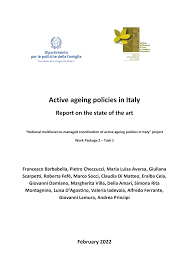
The problem of nutrition-related diseases continues to be a significant public health concern. One in five deaths around the world is due to a poor diet. The changing healthcare system has seen a shift in how it treats patients due to the epidemic of diet-related chronic diseases. Although there is increasing emphasis on interventions that use nutrition as a therapeutic modality for patients, more research is required to confirm these claims.
It holds great promise in meeting the long term and immediate nutritional needs. It is important to see more non-profits contracting with our healthcare system in order to deliver these services. These organisations face major challenges, including in terms sustainable funding.
Additionally, the current dietary recommendations we have are based upon population averages. Your individual needs may vary. Our brains are highly sensitive to changes in diet. Personalized databases can be created and maintained to help you make better food choices. These databases can also be used as guidance to help us change our lives.

Personalized diets could help to prevent immune-mediated disorders. We need to continue to research how the various components of a diet affect the immune system in order to prevent autoimmune diseases. Additionally, we need new immuno-metabolic pathways to develop therapies that address these issues.
Integrating cellular and molecular networks can activate immune-metabolic pathways. This interface has been exploited in immune-oncology, where drugs such as PD1 blockers have been successful in translating into clinical therapies. Similar to metabolic modulation, immunomodulatory strategies can be developed that help prevent and treat autoimmune and inflammatory diseases. We can now develop new therapies to treat Crohn's Disease, ulcerative Colitis, and other immune-related conditions using this knowledge.
The field of Nutritional Immunology is experiencing significant change over the past five years. Integration of high-dimensional-omics into a crossdisciplinary approach will enable us to analyze the molecular mechanism of immune and metabolic processes as well as to create new targets and therapeutics. For example, transdisciplinary studies have identified new ways to treat ulcerative colitis and Crohn's disease by targeting metabolic immune function.
In the last decade, brain function has seen a dramatic increase in nutrition. Brain tissue is a vulnerable target for inflammation, oxidative stress, and blood flow fluctuations. It is therefore crucial to understand the importance of nutrition in brain diseases.

Nutrition and immunity are closely connected. Early stages of immunologic development and lifelong immune homeostasis are closely linked to diet and metabolism. Changes in metabolism and diet can also lead to the development of overt diseases. To prevent or reverse diet-related disorders, it is crucial to make changes in your eating habits.
We also need to know more about the functional qualities of food. Functional foods have been shown to be effective in nutrition-related disease prevention. Certain nutrients such as vitamin A are known to have compounds that possess an immunological tolerance ability.
FAQ
How can I tell what is good for me?
Your body is your best friend. Your body will tell you how much exercise, nutrition, and sleep you need. It's important to pay attention to your body so you don't overdo things. Pay attention to your body, and ensure that you're taking care of your health.
These are five tips to help you lead a healthy lifestyle.
These are 5 ways you can live a healthy and happy life.
A healthy lifestyle means eating right, being active, getting enough sleep, managing your stress levels, and having fun. Eating well means avoiding processed foods, sugar, and unhealthy fats. Exercise helps burn calories and strengthens muscles. Sleeping well improves concentration and memory. Management of stress can help reduce anxiety levels and depression. And finally, having fun keeps us young and vibrant.
How often should you exercise?
A healthy lifestyle requires regular exercise. There is no set time limit for exercising. Finding something that you love and sticking with it is the key.
If you work out three times a week, then aim to complete 20-30 minutes of moderate intensity physical activity. Moderate intensity means you'll be breathing hard long after you're done. This type workout burns about 300 calories.
Walking is a great option if you are a keen walker. You can do 10-minute walks four days per week. Walking is low in impact and easy for your joints.
Jogging for 15 minutes three days a week is a good option if you prefer to run. Running is a great way to burn off excess calories and build muscle tone.
Start slow if it's your first time exercising. Begin with 5 minutes of cardio every other day. Gradually increase duration until you achieve your goal.
What can you do to boost your immune system?
The human body is composed of trillions if not billions of cells. These cells collaborate to form tissues and organs that perform specific functions. A cell that dies will be replaced by another. Chemical signals, called hormones, allow cells to communicate with each other. Hormones regulate every bodily process, from growth and development to metabolism as well as immunity.
Hormones are chemical substances that glands secrete throughout the body. They travel through the blood stream and act like messengers to control how our bodies function. Some hormones are produced internally while others are made outside of the body.
When a hormone-producing gland releases their contents into the bloodstream, hormone production begins. Once hormones are released they move through the bloodstream until reaching their target organ. Sometimes hormones stay active for only a short time. Some hormones remain active for longer periods of time and can continue to have an impact on the body's function long after they are gone.
Some hormones are made in large quantities. Some hormones are produced in large quantities.
Some hormones only are produced during certain periods of life. For instance, estrogen is produced during puberty, pregnancy, menopause, and old age. Women can get estrogen to build breasts, prevent osteoporosis, and keep their bones healthy. It is also known to promote hair growth and keep skin soft and smooth.
What are 10 healthy behaviors?
-
Breakfast is a must every day.
-
Don't skip meals.
-
Be balanced.
-
Get plenty of water.
-
Take care your body.
-
Get enough sleep.
-
Stay away from junk foods.
-
Get at least one form of exercise each day.
-
Have fun
-
Meet new people.
How can I live my best everyday life?
Find out what makes YOU happy. This is the first step in living a life that you love. Once you know what makes you happy, you can work backwards from there. Asking others about their lives can help you to see how they live the best life possible.
You might also enjoy books like "How to Live Your Best Life", by Dr. Wayne Dyer. He discusses finding happiness and fulfillment throughout our lives.
Statistics
- According to the Physical Activity Guidelines for Americans, we should strive for at least 150 minutes of moderate intensity activity each week (54Trusted Source Smoking, harmful use of drugs, and alcohol abuse can all seriously negatively affect your health. (healthline.com)
- WHO recommends consuming less than 5% of total energy intake for additional health benefits. (who.int)
- According to the 2020 Dietary Guidelines for Americans, a balanced diet high in fruits and vegetables, lean protein, low-fat dairy and whole grains is needed for optimal energy. (mayoclinichealthsystem.org)
- WHO recommends reducing saturated fats to less than 10% of total energy intake; reducing trans-fats to less than 1% of total energy intake; and replacing both saturated fats and trans-fats to unsaturated fats. (who.int)
External Links
How To
How to Live a Healthful Lifestyle
A healthy lifestyle is one where you are able to maintain your weight, your health and your fitness level. This lifestyle includes healthy eating habits, regular exercise, adequate sleep, and abstaining from drugs, alcohol, caffeine, tobacco and other harmful substances. A healthy lifestyle will help you feel happy and fit. In addition, a healthy lifestyle reduces your risk of chronic diseases like heart disease, stroke, diabetes, cancer, osteoporosis, arthritis and many others.
The main goal of this project was to provide a step-by-step guide on how to live a healthier life. The first part of the project consisted of writing the introduction, which explains what a healthy lifestyle is, why people should adopt a healthy lifestyle and who we are. Then, I wrote the body paragraphs, which consist of different tips on how to keep a healthy lifestyle. Finally, I wrote the conclusion, which summarizes the whole article and provides some additional resources if needed.
I learned how to create a concise and clear paragraph through this assignment. Additionally, I learned how organize my thoughts into topic sentences and supporting information. Furthermore, I was able to improve my research skills by being able to identify specific sources and correctly cite them. Lastly, I gained knowledge on how to use proper grammar when writing.